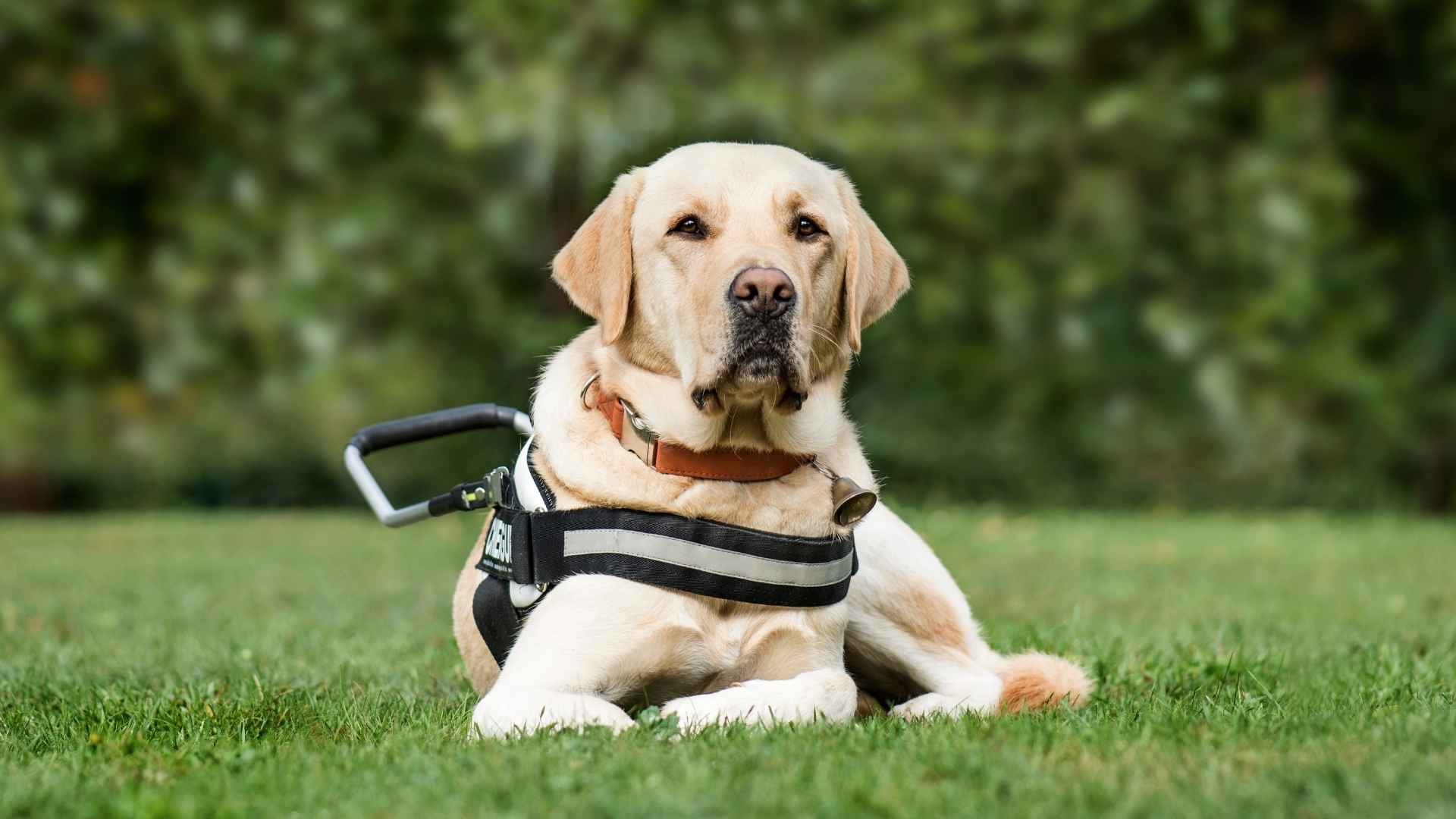Dogs have been by our side for thousands of years, offering loyalty, love, and support. Today, many of these amazing animals take on an even more important role as service dogs, assisting people with physical or mental disabilities in ways that truly change lives.
Did you know that an estimated 500,000 service dogs are working in the US today, helping their handlers with everything from mobility support to medical alerts? That’s pretty amazing!
These dogs are far more than emotional support animals or therapy dogs. Through extensive training, they’re specially trained to carry out specific tasks that their handler cannot do alone. For example, seizure alert dogs can sense an oncoming episode, while mobility assistance dogs help those with spinal cord injuries move safely.
Hearing dogs give vital cues to someone with a hearing impairment, and diabetic alert dogs detect dangerous changes in blood sugar.
In this guide, we’ll explore the best service dog breeds. Whether from reputable breeders or animal shelters, each potential service dog is chosen for their intelligence, calm demeanor, and friendly nature, making them excellent service dogs for people with mental disabilities or physical disabilities alike.
Service Dog Breeds
1. Labrador Retriever
The sweet-natured Labrador Retriever is easily one of the most popular dog breeds in America—and for good reason! With their kind eyes, famously wagging “otter tail,” and an ever-friendly personality, Labs are the perfect blend of charm and athleticism.
They’re sturdy yet gentle, standing between 21.5 to 24.5 inches and weighing up to 80 pounds, with a sleek coat that comes in yellow, black, or chocolate. Labs are true family companions who adore being around people, love a good swim, and thrive on activities like long walks or endless games of fetch.
Why Labrador Retrievers make excellent service dogs:
Naturally calm and adaptable temperament.
Their intelligence and eagerness to please allow them to quickly master a wide range of service dog tasks.
Highly sociable and confident, which helps them remain relaxed in noisy or crowded environments.
Their medium-to-large size is ideal for providing physical support.
They build strong, trusting bonds with their handlers.
2. Golden Retriever
The Golden Retriever is a beautiful, energetic, and affectionate Scottish gundog that has long held its place among America’s most popular breeds.
AKC states that these pups were originally developed in the 19th century at the Guisachan estate of Lord Tweedmouth in Scotland for retrieving waterfowl, which explains their love for swimming and fetching.
They’re sturdy, medium-sized dogs with a muscular build, a broad head, intelligent and friendly eyes, short ears, and their hallmark feathery golden coat and “merry” wagging tail. They excel in many roles—hunting companions, search-and-rescue dogs, and of course, as trusted emotional support dogs and service dogs.
Outgoing, trustworthy, and eager-to-please, they’re also remarkably easy to train, which makes them one of the most dependable choices for service dog work.
Why Goldens make great service dogs:
Naturally comforting and people-loving.
Highly intelligent and quick to learn.
Gentle yet strong enough for mobility help.
Loyal and devoted to their handler.
Hardworking with a calm and confident nature.
3. German Shepherd
The German Shepherd is a large, agile, and highly intelligent service animal that has long been admired for its loyalty, bravery, and versatility. Standing 22–26 inches tall and weighing between 50–90 pounds, this powerful yet graceful breed is part of the herding group and thrives when given a purpose.
Known for their confidence and keen instincts, German Shepherds excel in many roles, including military and police work, search-and-rescue missions, and most importantly, as reliable service dogs.
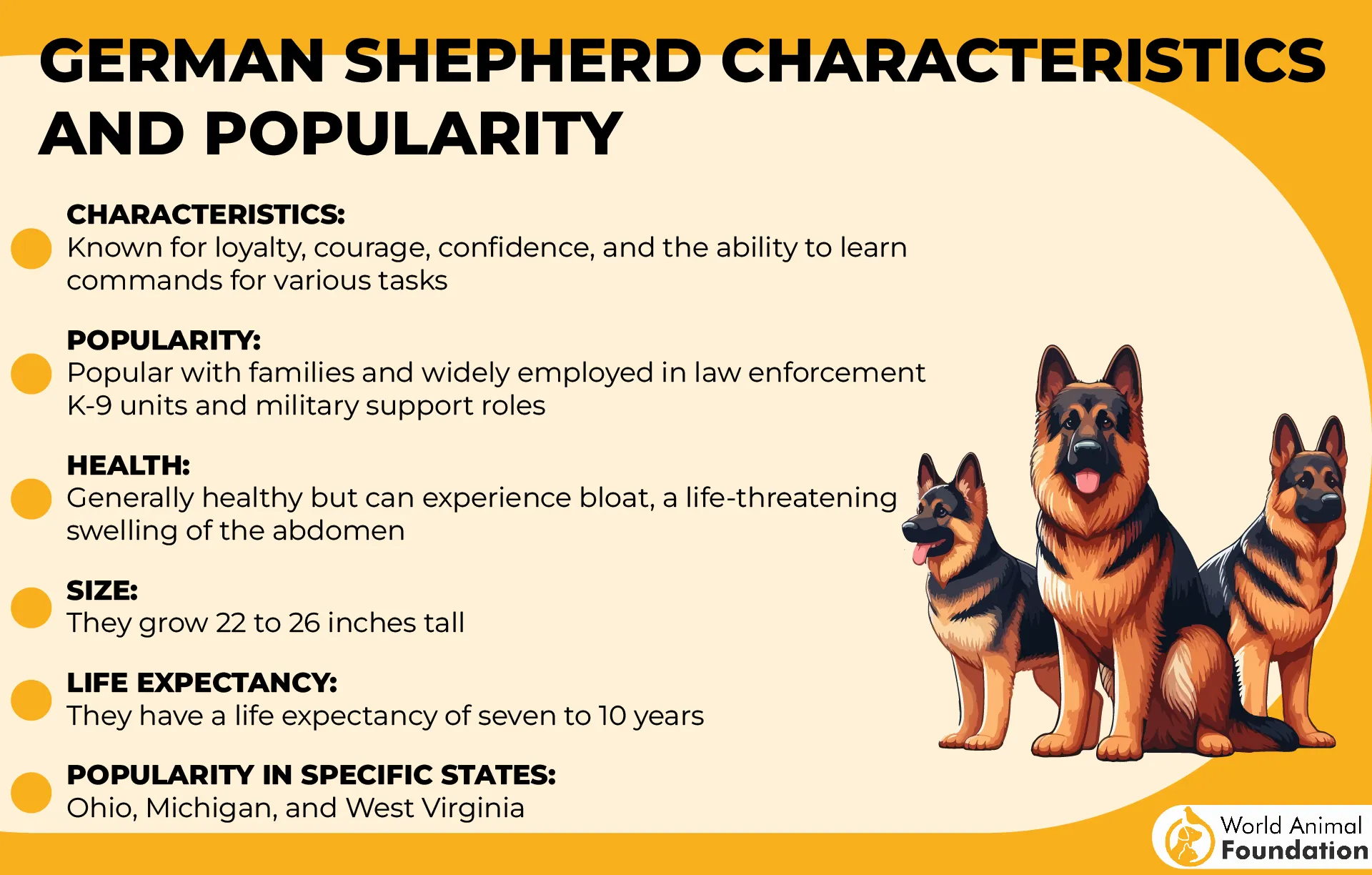
While they sometimes carry a reputation for being “all teeth” due to their media portrayal, the truth is they’re deeply devoted companions who are gentle, protective, and incredibly bonded to their handlers.
Why German Shepherds make great service dogs:
Exceptionally intelligent and trained specifically to perform complex service dog tasks.
Loyal and deeply protective of their handler’s safety.
Highly adaptable to new environments and routines.
Courageous and reliable in any situation.
Energetic yet patient, making it easy to train service dogs for various needs.
4. Boxer
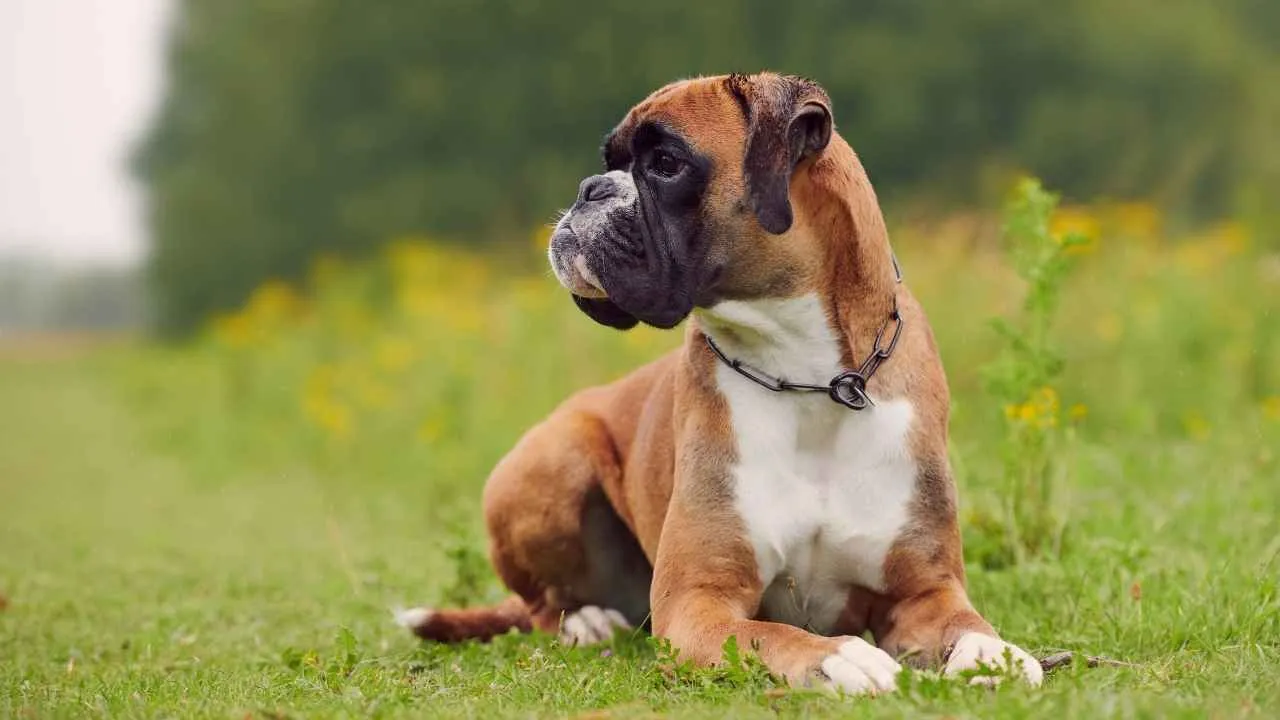
The Boxer is a smooth-coated working dog with an impressive history that dates back to ancient Assyria. Britannica mentions they these pooches were developed in Germany, have Bulldog and Great Dane ancestry, and were once used as a fearless big-game hunter and estate guardian.
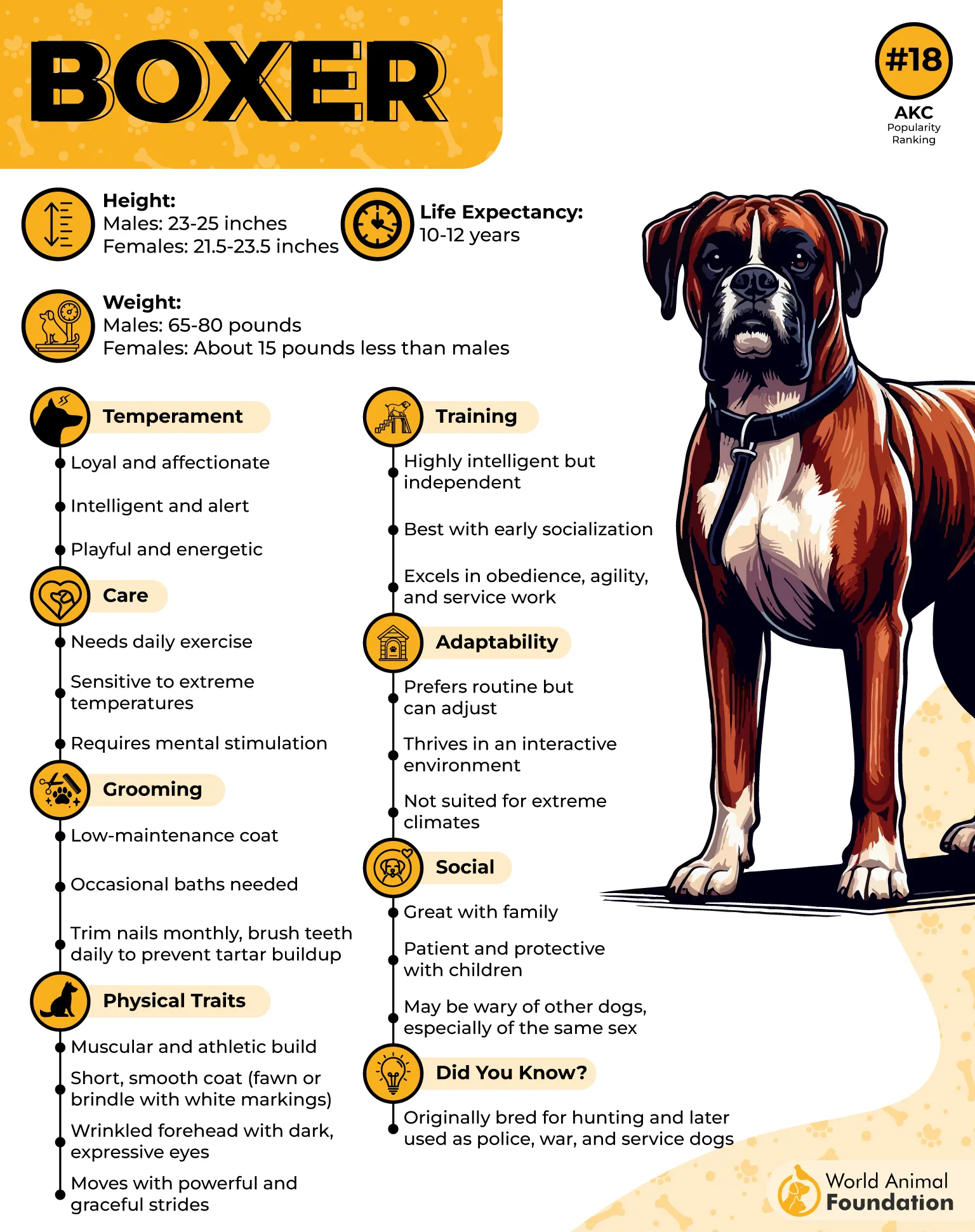
Today, Boxers are known for their playful yet dignified personalities, their square, muscular build, and their expressive faces that often look like they’re wearing a perpetual frown.
Despite their slightly intimidating look, Boxers are affectionate, loyal, and crave human connection. They thrive when they have a purpose, which is why they’re often chosen as guide dogs, mobility aids, or even seizure-alert companions.
Why Boxers make great service dogs:
Loyal and loving, forming deep bonds with handlers.
Intelligent and eager to learn during service dog training.
Friendly and patient, ideal for families and public settings.
Naturally protective, looking out for their person.
Adaptable and suited for roles like psychiatric service dogs.
5. Border Collie
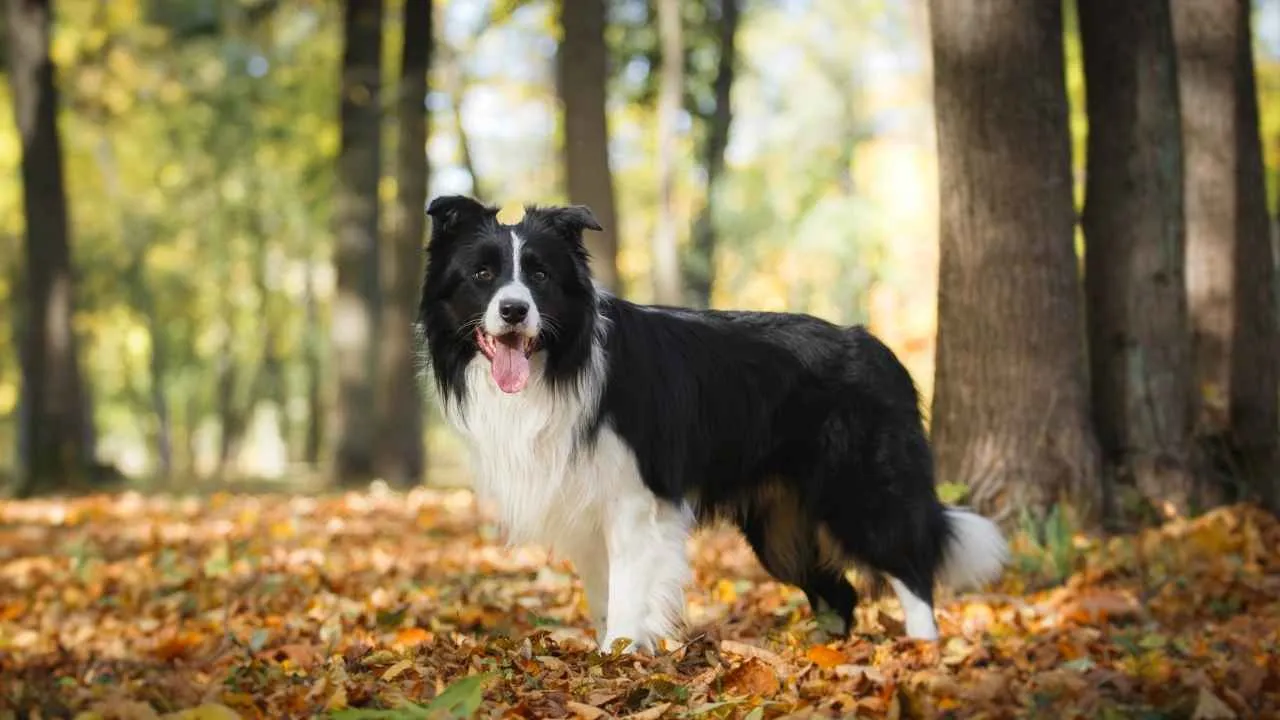
The Border Collie is one of the smartest and most energetic psychiatric service dog breeds, known for its intense focus, athleticism, and boundless energy.
Originally bred as a herding dog, the Border stands 18–22 inches tall and is agile, balanced, and highly trainable. Its famous “herding eye” reflects sharp intelligence and determination, making this breed a true workaholic.
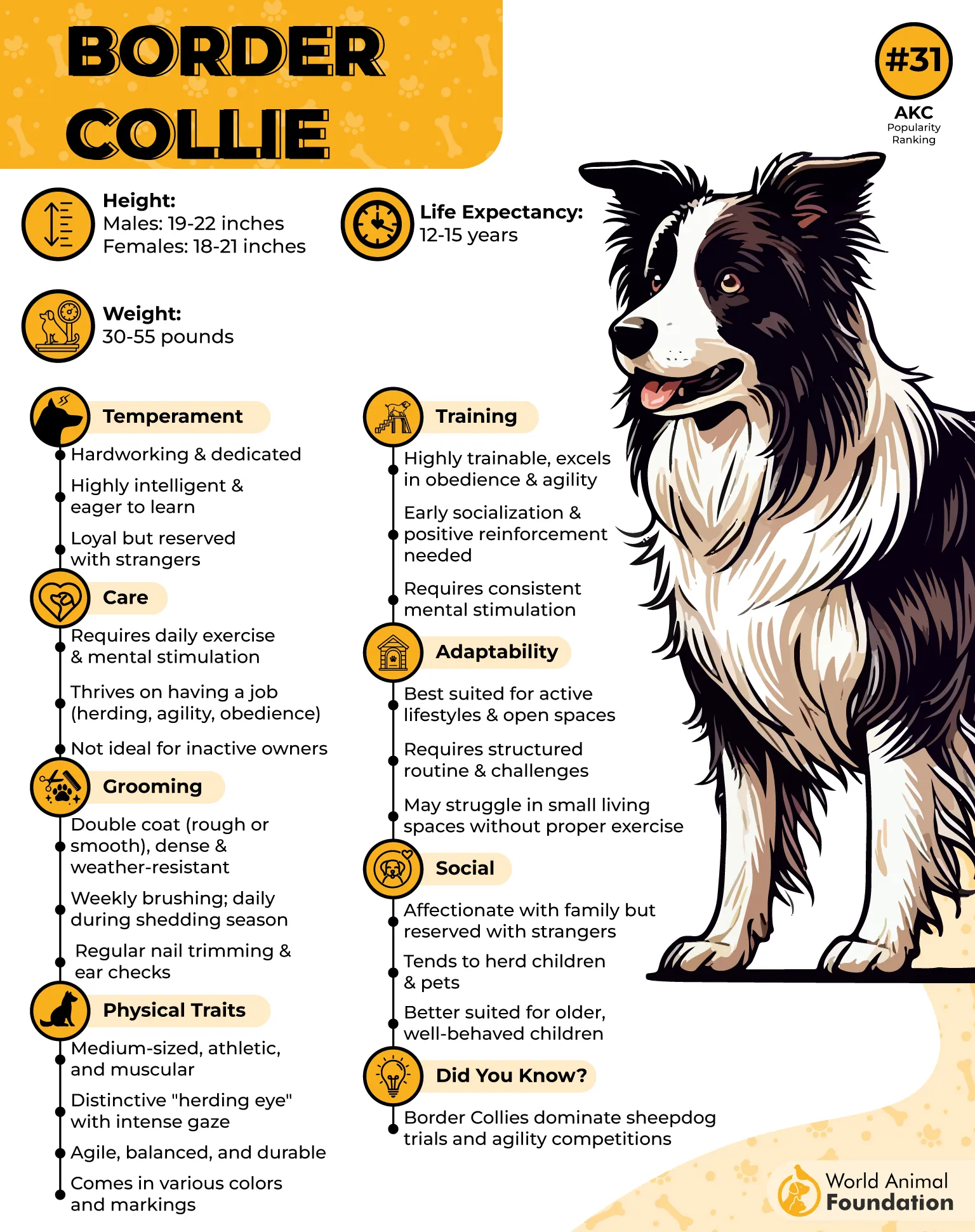
However, not all dogs have the stamina or mental drive of a Border Collie—this is a breed that thrives on having a job to do. When given a purpose as an assistance animal, Border Collies excel at learning complex routines and remain deeply loyal to their handler.
Why Border Collies make great service dogs:
The dog’s ability to learn and stay focused.
Quick to perform tasks like retrieving items or alerting to problems.
Loyal and affectionate while enjoying work and training.
Great for active handlers who can keep them engaged.
Show incredible intelligence in how service dogs play their roles daily.
6. Bernese Mountain Dog
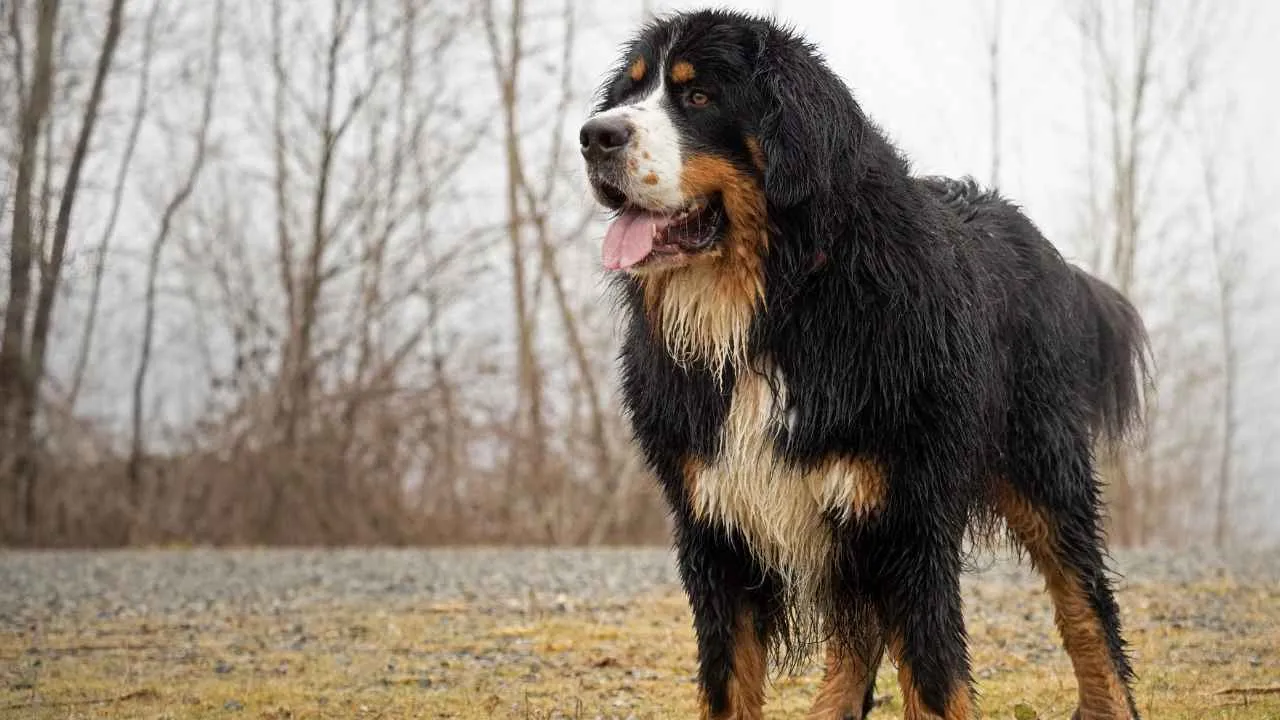
The Bernese Mountain Dog is a majestic large breed originally from the farms and pastures of Switzerland, where it was prized for its strength, intelligence, and gentle nature.
Standing over 27 inches tall with a striking tricolor coat of black, white, and rust, the Berner combines beauty with brawn.
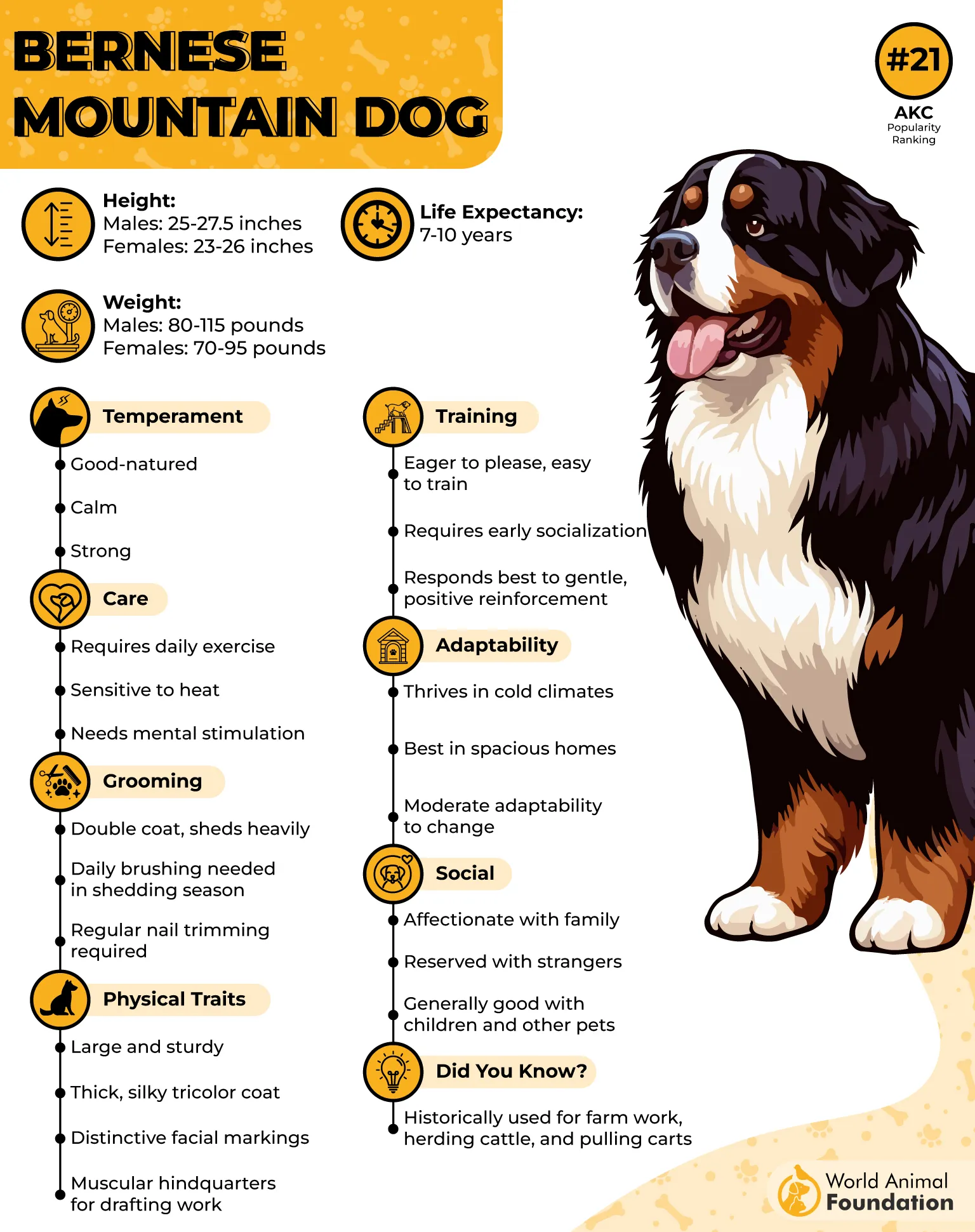
Known for their calm demeanor and affectionate personality, they’re gentle with children and deeply loyal to their chosen person. Though imposing in size, they are friendly yet dignified, which makes them an excellent choice for service work.
Berners are among the common breeds trusted for mobility support, as they are strong enough to pull wheelchairs, retrieve items, and even assist someone in standing.
Why Bernese Mountain Dogs make great service dogs:
Gentle giants that are ideal for mobility service tasks.
Calm, loyal, and focused in public spaces like a dog park.
Their size also makes them ideal for deep pressure therapy.
Affectionate, making them great psychiatric service dogs.
Highly intelligent and eager to learn.
7. Great Dane
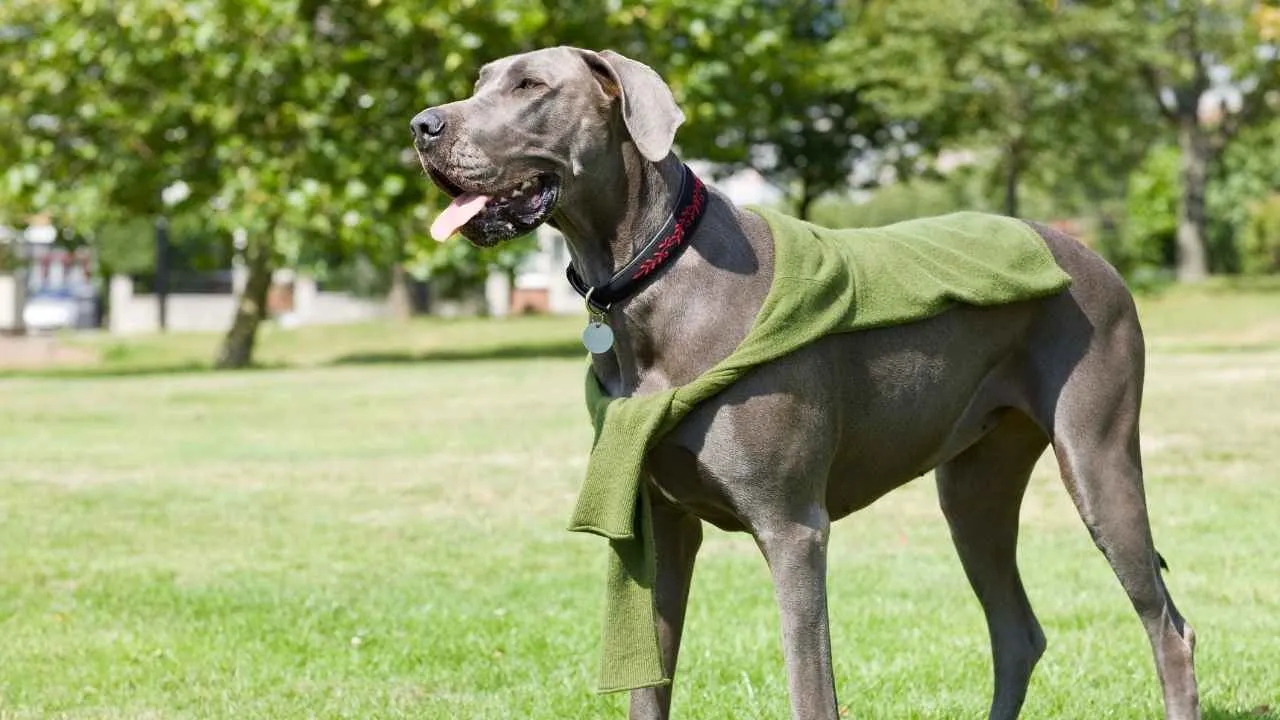
The Great Dane, often called the “gentle giant,” originated in Germany over 400 years ago, where it was bred to hunt wild boars and guard estates.
Despite its imposing size, this breed is calm, affectionate, and incredibly loyal. Standing as one of the tallest dog breeds, Great Danes are mild-mannered and intelligent, making them surprisingly easy to train.
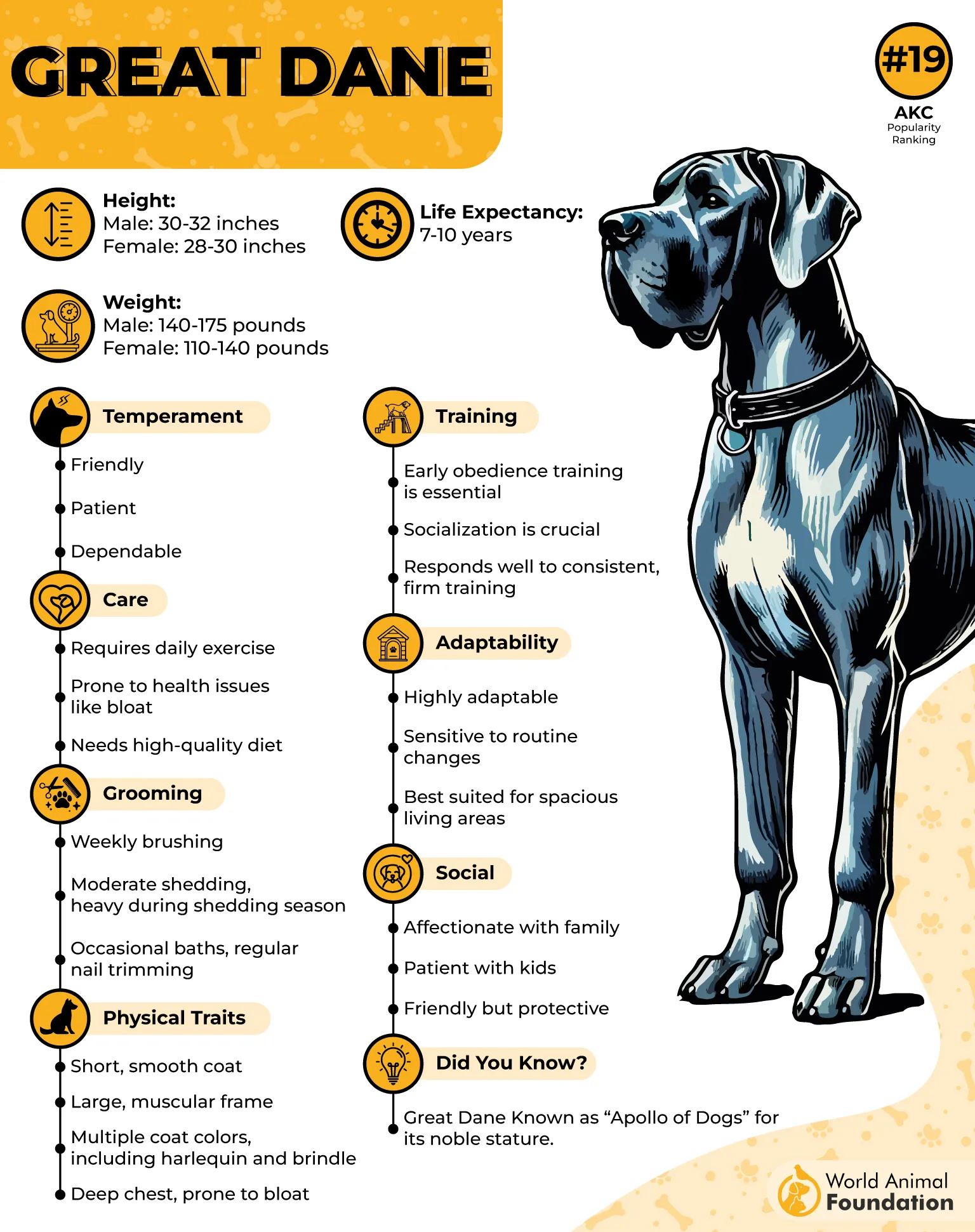
Their towering height and strength make them ideal for mobility support, as they can help someone balance, stand, or walk more confidently. They’re also deeply affectionate, offering comfort for those in need of psychiatric support, especially children.
Intelligent and agreeable, Great Danes can perform specific tasks like retrieving items, providing balance, and even helping during episodes of anxiety or PTSD.
Why Great Danes make great service dogs:
Large and strong enough to aid with mobility and balance.
Calm and affectionate, great for psychiatric support.
Intelligent and able to remain focused during training.
Gentle nature makes them the right dog for families needing support.
Can learn a range of tasks from hearing assistance to alerting for medical needs like low blood sugar, unlike some other animals.
8. Poodle

Poodles are often seen as the aristocrats of the dog world, but beneath their elegant, curly coat is a highly intelligent, athletic, and versatile companion. They come in three size varieties—Standard, Miniature, and Toy—but the larger Standard Poodle is the best suited for most service dog tasks.
Originally bred as water retrievers, Poodles are eager learners with exceptional adaptability, making them one of the best breeds for service work.
Their hypoallergenic, low-shedding coat is ideal for people with allergies, and their calm, sociable personality allows them to easily adjust to different environments.
Beyond their intelligence and trainability, Poodles are known for their warm nature, making them perfect for people who need a dog to provide companionship while performing essential tasks.
Why Poodles make great service dogs:
Exceptionally intelligent and easy to train.
Hypoallergenic coats suit handlers with sensitivities.
Adaptable to public spaces, unlike some other breeds.
Miniature and Toy Poodles can help as small dogs in less physical roles.
Offer comfort and support for those with psychiatric disabilities.
9. Pomeranian
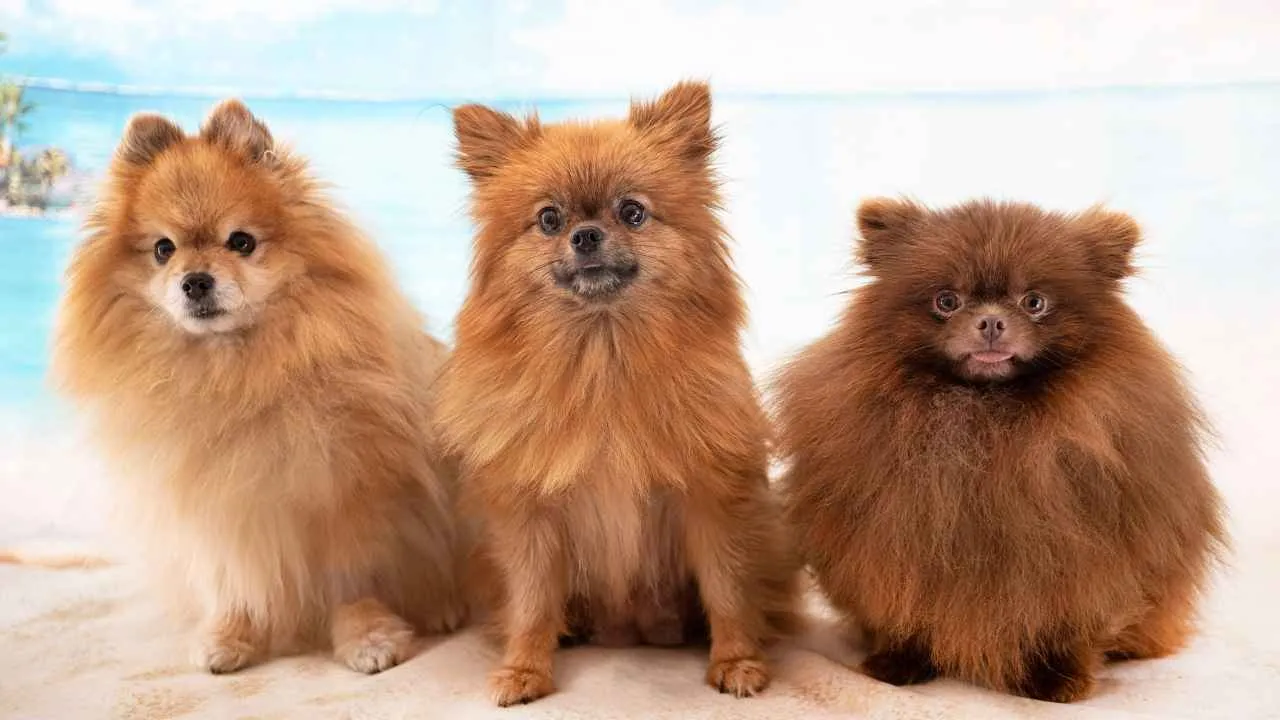
The Pomeranian is a spirited toy breed with a history that traces back to larger sled-dog ancestors. Bred down in size in the duchy of Pomerania, these tiny yet confident dogs have a foxlike face, erect ears, and a luxuriously full coat. Despite their small stature, they’re highly intelligent and alert, making them surprisingly capable as service dogs.
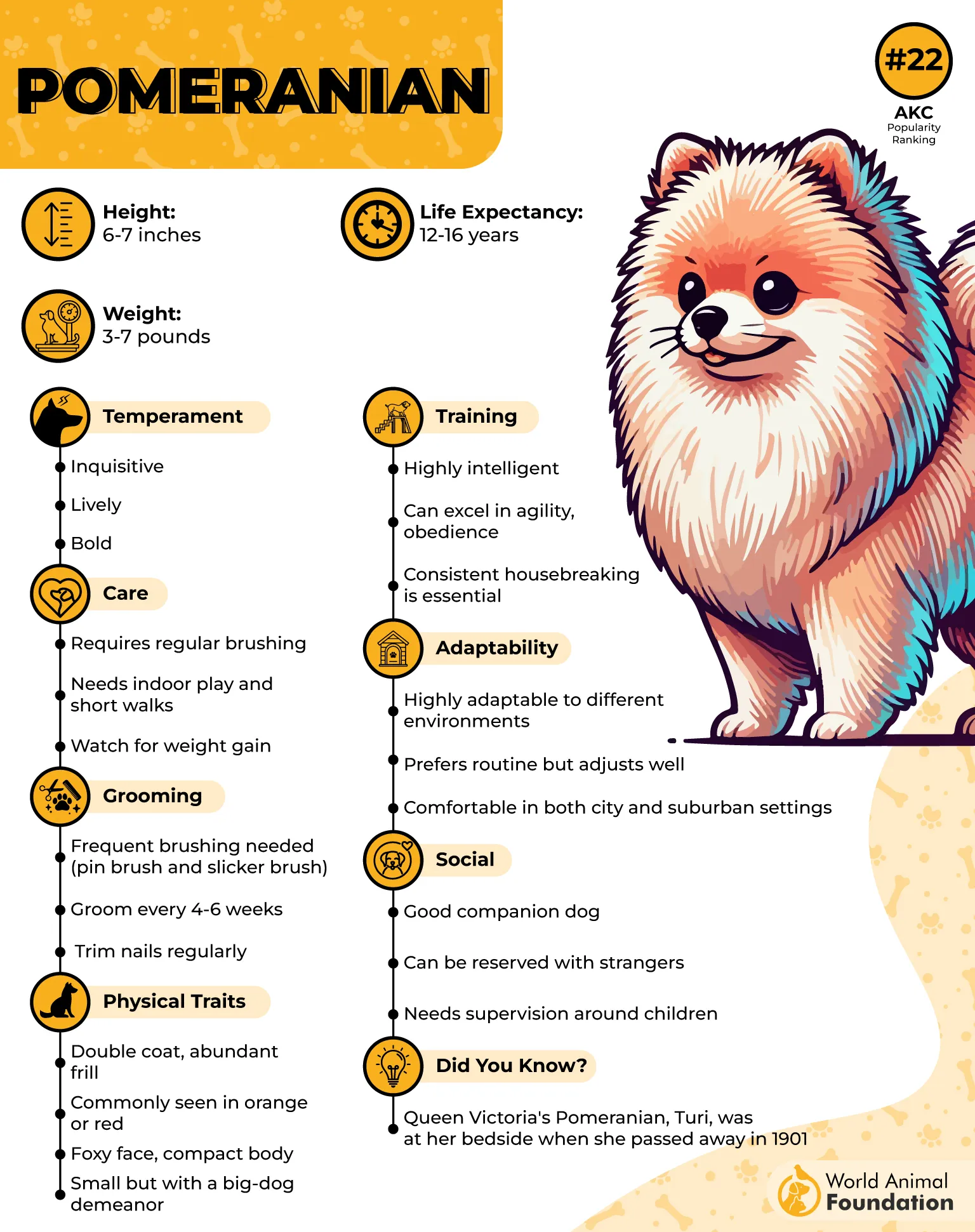
Their portability allows them to accompany their handlers anywhere with ease, making them especially useful for people who need assistance in compact or busy environments.
While they can’t provide heavy physical support, they shine in specialized roles like medical alert, hearing support, and emotional comfort.
Why Pomeranians make great service dogs:
Skilled at detecting diabetic changes and low blood sugar levels.
Helpful for hearing assistance, alerting to important sounds.
Offer calming presence for anxiety and psychiatric support.
Can perform specific tasks like retrieving small items or signaling for help.
Ideal choice for those who prefer a lightweight, easy-to-manage dog over other animals.
Conclusion
When it comes to choosing the right service dog, the most important factor is how well the dog’s temperament, size, and skills match the individual’s disability. There are many breeds that can excel in service roles, but what matters most is their ability to learn, stay focused, and build a strong bond with their handler. With proper guidance, even a dog you wouldn’t expect can become a reliable partner.
Some handlers work with professionals, while others opt for self-training to meet their unique needs. Every service dog is chosen for the same reasons: loyalty, intelligence, and the drive to help. In the end, the best service dog is the one that makes life safer, easier, and filled with more independence for the person they serve.


